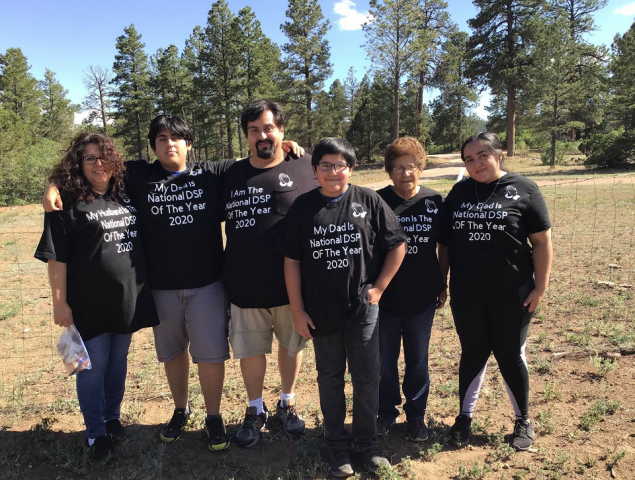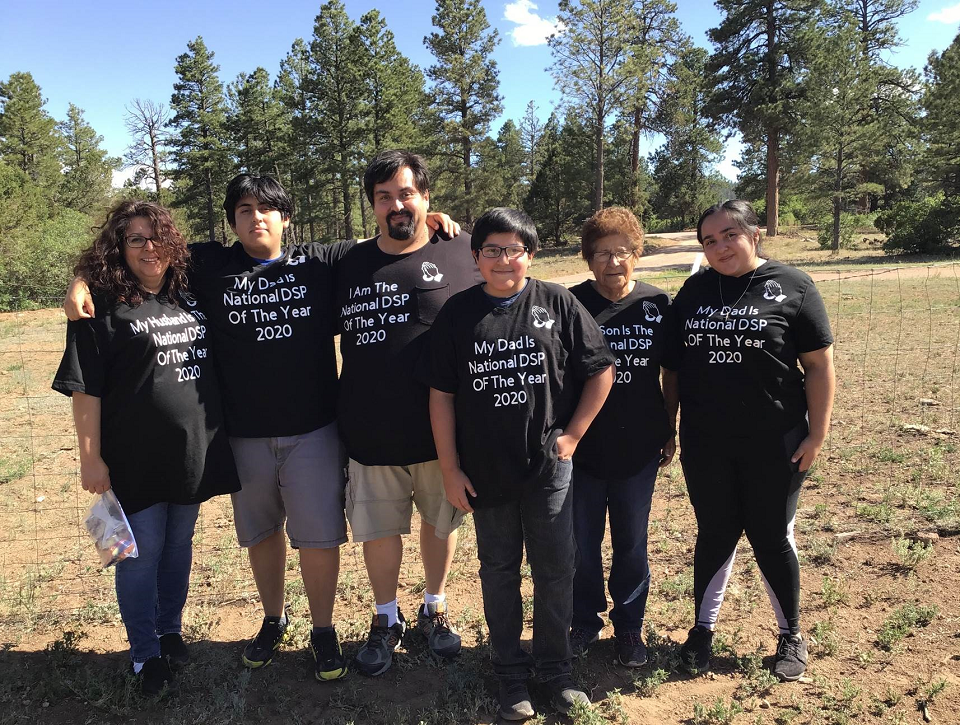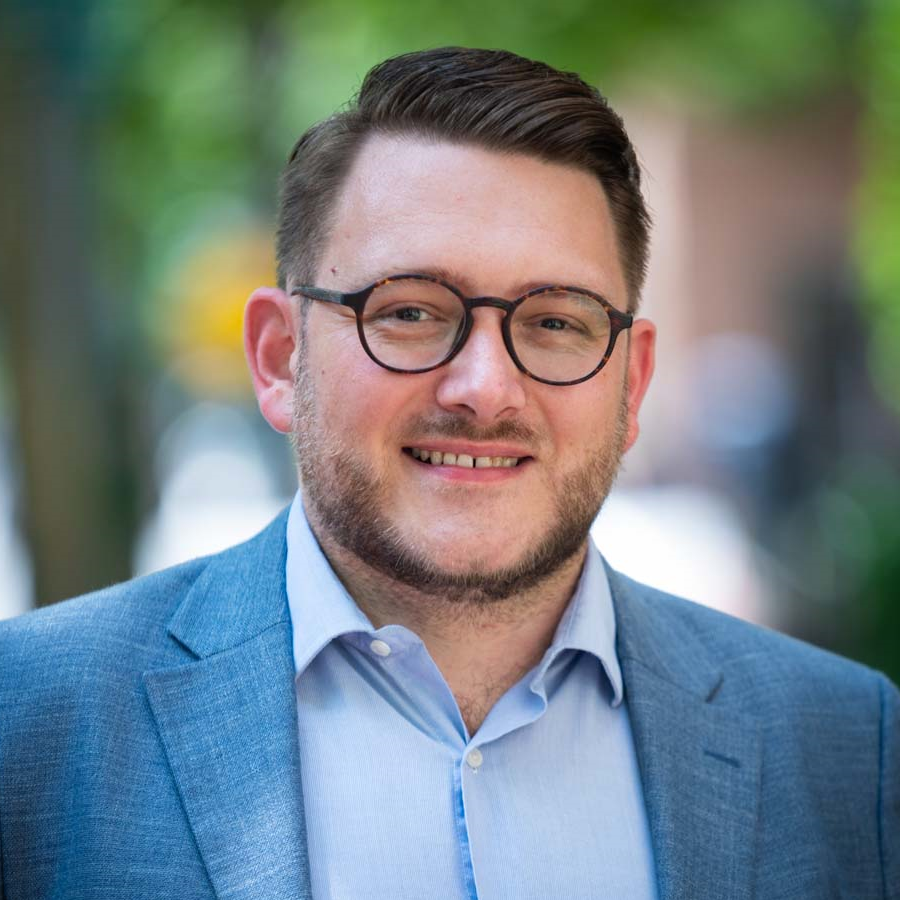Insisting on Included. Supported. Empowered. Despite Tumultuous Times
Share this pageby Sean Luechtefeld, Communications Director

When the ANCOR Foundation launched the Included. Supported. Empowered. campaign in 2017, we could not have envisioned what the home stretch of this three-year initiative would look like. From the public health pandemic that has rocked the global economy to a national reckoning with race, 2020 has been far from the soft landing we envisioned.
Given the uncertainty and unrest the past six months have brought, it would be easy to place our campaign on hiatus. It would be reasonable to think that we can’t possibly prioritize inclusion and empowerment when the sanctity of the lives of the people we support — let alone their health and well-being — is being jeopardized by COVID-19. There’s just no way we can think about community inclusion at a time when people with intellectual and developmental disabilities (I/DD) need to be isolated from the coronavirus…right?
Wrong!
In fact, not only is that sentiment a far cry from how we’re thinking about the value of inclusion, support and empowerment in the era of coronavirus, but it obscures the critical nature of the supports that community-based disability providers deliver, and the fact that when people are included in the community, they’re safer and healthier than anywhere else they could be.
Since the pandemic began in early March, we started hearing and sharing stories of the significant challenges facing providers — and the substantial victories they were scoring as they sought to overcome barriers to keeping people safe and in the community where they belong. From direct support professionals sheltering in place in the homes of the people they support to organizations establishing their own supply chains to get groceries and other essential items to people in need, community providers really have been doing it all.
Importantly, community providers have been doing it all despite the scant resources they’ve received to help them weather the ongoing storm. At the state level, we’re seeing a patchwork quilt when it comes to Medicaid programs’ eagerness to support the provider community. While some states have pulled out all the stops to ensure providers have every resource available to facilitate their ability to keep people healthy and safe, other states have, to put it bluntly, failed their most vulnerable constituents.
But in all states, one common thread is that significant delays in federal relief have exacerbated the situation facing people with I/DD and the community-based providers that support them. It took 90 days from when the pandemic was declared (on March 11) for the U.S. Department of Health & Human Services (HHS) to commit emergency relief funds to Medicaid-reliant providers of I/DD services (on June 9). Those 90 days represented 90 days during which the pandemic’s forgotten faces — people with I/DD and the providers who are essential to their health and well-being — were left behind by the federal COVID-19 response. And those delays were despite the fact that 16 days into the pandemic (on March 27), Congress established the Public Health & Social Services Emergency Fund, a now-$175 billion appropriation expressly for the purpose of supporting the essential health care services like those delivered by ANCOR members every day.
It was this situation that led ANCOR to launch the #ForgottenFaces campaign on May 4, a full-scale grassroots advocacy and public outreach campaign designed to insist that the federal government stop overlooking the pandemic’s forgotten faces. It was the efforts of the nearly 40,000 advocates who have taken action through #ForgottenFaces campaign thus far that led HHS to commit $15 billion to Medicaid-reliant providers on June 9. Although it won’t ensure that all providers have what they need to manage through and beyond the pandemic, this essential lifeline funding will be critical to ensuring that providers otherwise on the brink of financial collapse can keep their doors open and continue delivering critical supports to our most vulnerable neighbors.
Although #ForgottenFaces is a distinct effort from Included. Supported. Empowered., I devote this month’s Included. Supported. Empowered. update to the #ForgottenFaces effort for a simple reason: without the storytelling and public awareness-raising of the past two-and-a-half years, none of what we have accomplished so far would have been possible.
Yes, we still have work to do. Yes, the pandemic will continue for months, and yes, people with I/DD will remain vulnerable to the coronavirus’ harshest impacts. But we know now — without a shadow of a doubt — that we have what it takes to make the case for investments in the ability of community-based providers to meet the basic needs of the people they support, as well as to continue ensuring their inclusion in and connection to the community. Disability providers in and beyond the ANCOR community have proven that they will step up — to deliver quality services, and to tell their stories along the way. And we are fully convinced that these stories are what compel lawmakers to take action.
In the coming months, we’ll be coming to you with the requests that we always make: tell us why your services matter. Tell us what is different about the lives of the people you support because of your work. Tell us what resources you need, and what it would mean if you had unfettered access to those resources. Your stories have always been essential to Included. Supported. Empowered., but now they also represent critical ingredients in our #ForgottenFaces initiative.
As we enter a summer like no other, we officially enter the home stretch of the Included. Supported. Empowered. campaign. We are also entering, we hope, the home stretch of the #ForgottenFaces campaign. At this pivotal turning point, we can’t predict what the next few months hold, but one thing is certain: we will remain immensely grateful for all you’re doing despite these tumultuous times.
Sean Luechtefeld is Communications Director for ANCOR and the ANCOR Foundation. Follow him at @SeanLuechtefeld.


